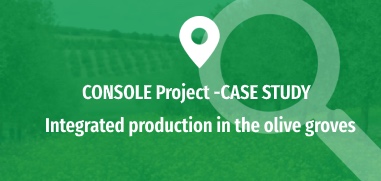Summary
With the integrated production program, sustainable agriculture in Andalusia has been promoted. The statistics offered by the regional government show that participation in this measure has been increasing over the past few years. Specifically, in the olive grove sector, there is a lot of competition. “Integrated production” provides the farmer with a sustainability brand that is usually linked to a better market price. The contract can be made directly with the administration or through cooperatives that manage various farms (minimum 5). As added value, the use of earth observation techniques allow the monitoring of Soil Organic Carbon (SOC) under different crop management increasing the soil quality and the mitigation of climate change impacts.
Objectives
- Preservation of soil conservation and biodiversity associated.
- Monitoring Soil Organic Carbon under different crop management
- Improving visibility of integrated production as a system provider of multiple lasting AECPGs.
Public Goods



Problem description
The regional administration provides information on the use and application of different amendments based on expert knowledge and pest risk forecasts. The objective was to obtain a product of both environmental and social quality by granting the integrated production brand. The different crop management have different impact on soil organic carbon. The evaluation process is based on Carbosoil model, developed with 16 soil types and more than 1600 soil profiles in order to predict the soil capacity for carbon sequestration in Mediterranean areas. The novelty in the present case study is developing a control-carbon soil map at a detailed scale for the 0-25 cm soil section, and identifying the impact of crop management on soil organic carbon through earth observation techniques.
For that, olive groves under different soil types and crop management will be selected and monitored for estimate the crop management impact on soil organic carbon.
